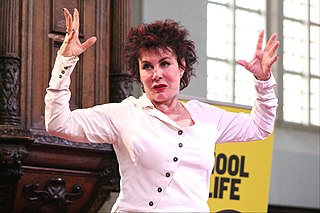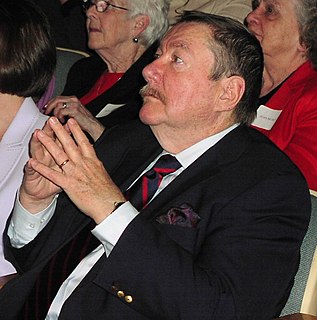A Quote by Ronald D. Moore
In television, there's this weird sense of isolation from your audience; you kind of get this feeling that you write the show for you and your wife and your friends and the other people who work on the show. It's our little show, and then it goes out into the world, and somebody watches it.
Related Quotes
You think that sense of humor goes as far as our ideology. I think that ultimately, we have we have very interesting reactions on our show. People are constantly saying, "I love your-your show is so funny, until you made a joke about global warming, which is a serious issue, and I can't believe you did that. And I am never watching your show again."
Doing this web show - people underestimate what it takes to do a web show successfully. They underestimate the amount of work that you have to do to get it to your audience after it's made. I think you have to work so much harder, especially if you don't have a huge budget. You have to know how to get your audience engaged, because the Internet is so distracting, and there are so many choices. People, even if they love your show, will forget to go back for episode four, because you know, people are busy.
We wanted it to have a simplicity to it, so that if you're a 12-year-old and you're watching the show and you get inspired, you could easily sketch this thing out with your markers or crayons or whatever, then you'd show your friends and they'd instantly go, 'Oh yeah, that's the Demogorgon, that's the monster from 'Stranger Things.'
There were a lot of lessons of production to be learned. On the page, the biggest thing you learn on any TV show is how to write to your cast. You write the show at the beginning with certain voices in your head and you have a way that you think the characters will be, and then you have an actor go out there, and you start watching dailies and episodes. Then, you start realizing what they can do and what they can't do, what they're good at and what they're not so good at, how they say things and what fits in their mouth, and you start tailoring the voice of the show to your cast.
In the stand-up comedy top, there's room for everyone - if you're good, there's room for everyone. You'll put on your own show - no one casts you. You cast your own show as a stand-up comedian. When you get good at stand-up comedy you book a theater and if people show up, people show up. If people don't show up, people don't show up. You don't have a director or a casting agent or anybody saying if you're good enough - the audience will decide.
It's interesting: I went 25 years without watching a single television show. I was one of those people, because I was so inside how a television show was made, if I would turn on somebody else's show, I would sit there and analyze it, like, 'Oh, so they had four hours in this location and had to get out and the number of set-ups, etc.'
I think your posing and your onstage presentation is yet another piece of the craft. So anytime you get onstage to show the muscles and show the finished work, that should be looked at with the same kind of respect and appreciation. I'm glad everybody else appreciates it, but I still want to get better.
I learned that a television show is not a collaboration. You give your 180 percent, but you do not question the show-runners. I remember doing a reading, and my part was kind of small that week, and I commented on it, and the next week, they cut me out of the show. So I learned that you never ask questions. In TV, you always assume you're going to be fired.



































